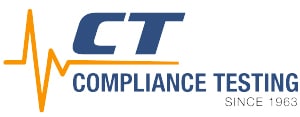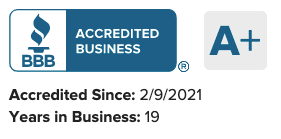If you’re an electronic or electrical device manufacturer aiming to distribute your product in the European Economic Area (EEA), one critical step in the process of achieving market access is getting CE certification.
There’s no precise “CE electrical certification.” Instead, electrical devices sold in the European Economic Area (a shared market that consists of the EU countries, plus Iceland, Liechtenstein and Norway) need to comply with several relevant directives in order to get a CE mark.
These include the EMC Directive (a directive regarding electromagnetic compatibility), the LVD directive (electrical safety) and the RED Directive (radio equipment).
Understanding which directives apply to your device and how you can achieve compliance with them is often a confusing, challenging process.
As specialists in CE testing and compliance, our team can assist you by identifying the specific directives and standards that apply to your product, carrying out testing and helping you to get your device a CE mark and access the European market.
To learn more about CE electrical certification and compliance, you can continue reading below.
You can also contact us online or call us at 866-540-5287 to talk to our engineers, ask any question about CE compliance, or request a quote for testing your electronic device and helping you to achieve certification for selling within the EU.
What is CE Certification?
CE certification signifies that a product meets the European Union’s standards for safety, health and environmental protection. “CE” itself stands for “Conformité Européenne,” which is French for “European Conformity.”
Devices that conform to EU standards are designated with the CE mark, which you can usually find on the device and/or its packaging.
The CE Mark
The CE mark, a recognizable logo, needs to be visibly placed on electronic products sold in the European Economic Area. It’s not just a logo, but a declaration from you, as an electrical device manufacturer, that your product complies with all EU directives and regulations.
Why is CE Certification Important?
Since complying with the European Union’s standards is mandatory for selling products in the European Economic Area, getting a CE mark is a key step in gaining access to this market for your electronic or electrical device.
Beyond regulatory compliance, the CE mark offers numerous advantages for your product and brand.
The CE Mark is a Legal Requirement
Without the CE mark, electronic devices cannot legally be sold in the EEA. The CE mark acts like your passport to the European market — without it, your business could face fines or other legal actions.
CE Marking Boosts Consumer Confidence
The CE mark is a widely known symbol of quality and safety. It reassures customers that your product is reliable and enhances its reputation, which may lead to improvements in your brand value, market presence and reputation.
Achieving CE Compliance May Help Outside the EU
Many international markets have their own standards for electrical and electronic devices that are similar to those required for the CE mark. These may include standards for safety, voltage fluctuations, performance and environmental protection.
By designing your device for CE compliance, it may become easier to access markets such as the United Kingdom, Japan, South Korea, Australia, New Zealand and others.
How to Achieve CE Electrical Certification
Understand Which Directives Affect Your Device
Achieving CE certification for your electrical device starts with identifying the standards that are applicable to your product.
Common standards and directives for electrical devices include:
- Electromagnetic Compatibility (EMC) Directive
- Low Voltage Directive (LVD)
- Radio Equipment Directive (RED) for radio equipment
Many electronic and electrical devices are also subject to specific standards and regulations in the European Union, including Europäische Norm (European Norm) standards harmonized with standards created by the International Electrotechnical Commission.
If you’re not sure which standards and regulations apply to your product, feel free to contact us and talk to our engineering team. We can identify the specific industry standards you’ll need to meet and help you throughout the design, development and manufacturing process.
Carry Out Evaluation and Testing for Your Device
Once you’ve identified the standards and regulations that are relevant for your electrical device, you’ll need to carry out CE testing to ensure it complies with these standards.
A variety of tests are used in order to assess your device and ensure it complies with all norms required to receive the CE mark. As an accredited testing lab, we can complete testing for your product and provide full documentation of your device’s performance and results.
If your device fails testing, we can also provide detailed advice and information to help you with design changes to ensure compliance on your next round of testing.
Prepare Technical Documentation & Declaration of Conformity
Finally, after your device has successfully completed testing, you’ll need to sign a Declaration of Conformity. This is a document that formally confirms your device complies with all required EU standards and is eligible for sale in the European Economic Area.
Once these steps are completed, you can affix the CE mark to your device, making it ready for sale within the European market.
How to Maintain CE Compliance
Complete Regular Monitoring and Testing
Compliance with CE standards and regulations isn’t a one-time event. You may need to carry out regular monitoring and testing to ensure your device continues to adhere to the standards required for its CE mark.
Update Your Device’s Technical Documentation
As your product evolves, so too should its technical documentation. Keeping this updated is a key part of maintaining compliance, particularly as EU regulations and standards may change over time.
Contact Us for CE Testing Assistance
Getting CE certification for your electrical device is a critical step in bringing it to market in the European Economic Area. Not only does it open up this large market — it also signals to your customers that your device is tried, tested and proven to be reliable.
As specialists in CE testing for electrical and electronic devices, we offer a complete range of testing services to help you get a CE mark for your product.
To ask a question, talk to our engineers, or request a quote for testing your device, contact us online or call us at 866-540-5287.



